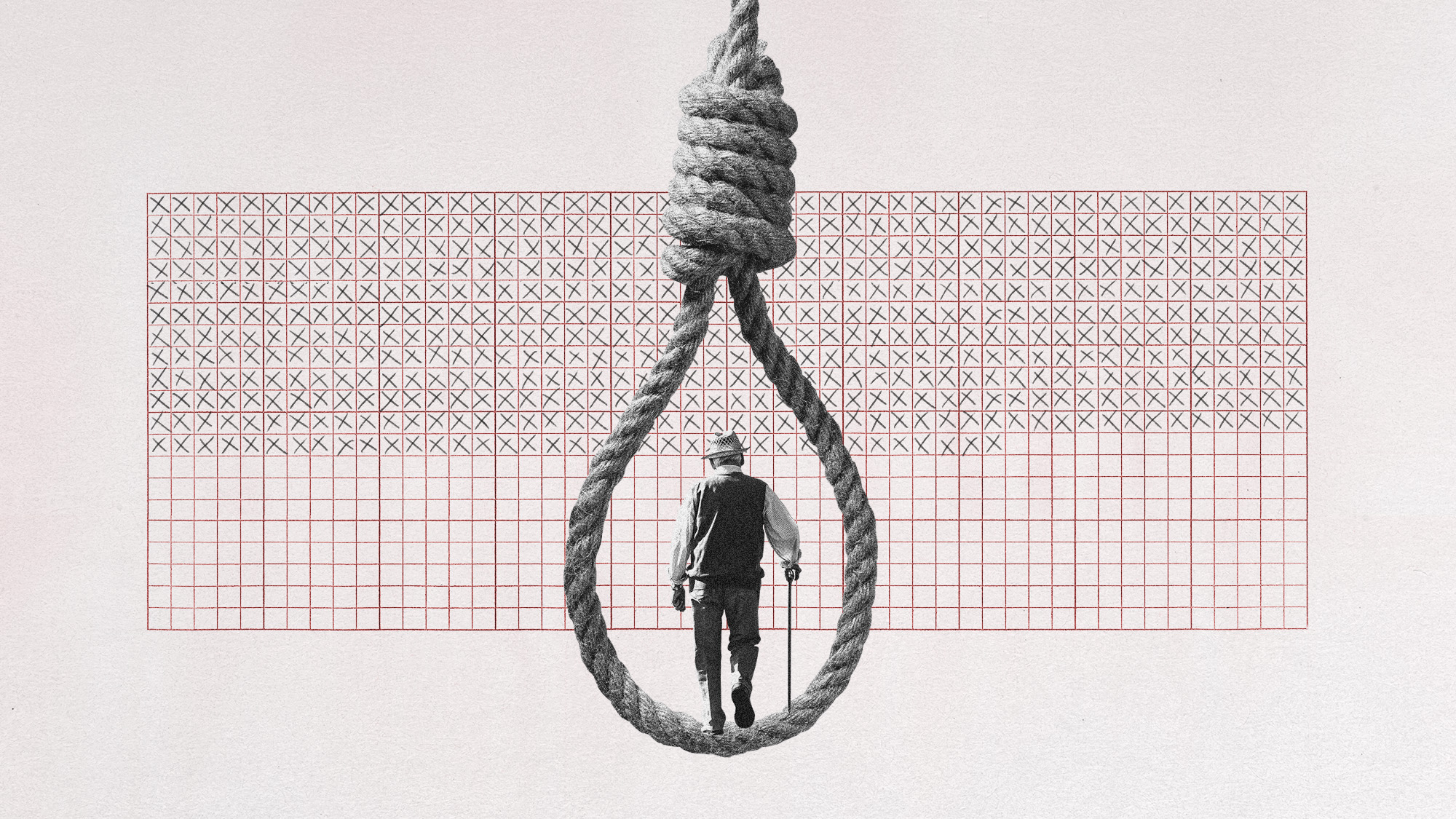Iwao Hakamada: Japan's record-breaking death row prisoner
Former boxer spent 46 years condemned to execution but his retrial could clear his name

A free daily email with the biggest news stories of the day – and the best features from TheWeek.com
You are now subscribed
Your newsletter sign-up was successful
A former boxer who spent longer on death row than any other prisoner in the world has "become a cause célèbre" for opponents of Japan's death penalty.
Iwao Hakamada was arrested in 1966 on suspicion of murdering his boss in Shizuoka, central Japan. The executive's house had been set alight and he, his wife and two children were found "stabbed to death", said The Observer. Hakamada was found guilty in 1968 and sentenced to hang. He has not left custody since.
In 2014 a retrial was ordered after some of the original evidence was ruled unsafe. Proceedings finally began last October and Hakamada, now 88, has proclaimed his innocence, saying he was "forced to confess" during 12-hour interrogations. A decision in the retrial is expected in late September.
The Week
Escape your echo chamber. Get the facts behind the news, plus analysis from multiple perspectives.

Sign up for The Week's Free Newsletters
From our morning news briefing to a weekly Good News Newsletter, get the best of The Week delivered directly to your inbox.
From our morning news briefing to a weekly Good News Newsletter, get the best of The Week delivered directly to your inbox.
The case of Iwao Hakamada
In 1966, Hakamada was a factory worker in his thirties, not long retired after a successful boxing career. After he was arrested, he was "interrogated for 20 days with no lawyer present", said Amnesty International. The confession Hakamada signed "would form the basis of his conviction".
Hakamada later retracted his statement, saying he was "beaten, threatened and forced to confess". The evidence against him was "questionable" and scant – but he was found guilty nonetheless. One of the judges at his trial believes Hakamada was wrongfully convicted. "I felt extremely guilty that I had to sentence an innocent man," said Kumamoto Norimichi. "I still do to this day." Six months after the trial, Kumamoto resigned as a judge.
In 2014, Hakamada was temporarily released from death row when Shizuoka District Court granted him a retrial based on new DNA evidence. After the prosecution appealed, the decision was overturned by Tokyo's High Court – but the Supreme Court then "directed the high court to reconsider". In March 2023, a retrial was given the go-ahead and it began in October.
"Five pieces of bloodstained clothing" Hakamada was "supposedly wearing at the time of the killings" were key evidence, said The Asahi Shimbun – but the High Court ruled there was a "high possibility that the evidence was not only fabricated but also planted".
A free daily email with the biggest news stories of the day – and the best features from TheWeek.com
The District Court is due to rule on the retrial in September, but Hakamada "has always faced near-impossible odds", said The Observer. About 99% of criminal cases that go to trial in Japan end in convictions.
Japan's death-row inmates
Japan is the only industrialised democracy other than the US that still uses capital punishment. And it enjoys a surprisingly high level of public support – more so since the sarin gas attack on a Tokyo subway in 1995 that killed 13 people. Seven members of the doomsday cult responsible were executed in 2018.
A 2019 opinion poll of 3,000 adults – conducted every five years by the country's Cabinet Office – found that nearly 81% of respondents thought the death penalty was necessary in some cases. Only 9% said that it should be abolished in all cases.
But the punishment is rarely enforced. Only 98 prisoners have been executed since 2000, most recently Tomohiro Kato (responsible for the Akihabara massacre in 2008) in 2022. Nevertheless, "there is little political appetite for abolition that would spare the 106 people currently on death row", said The Observer.
Rights groups have "criticised Japan's reliance on confessions, which they say police often obtain by force", said the BBC. Japan has also been internationally scrutinised for the way it applies the penalty. Legally, executions must be carried out in "utmost secrecy", said the Death Penalty Information Center.
Inmates spend on average 15 years on death row while their sentences are reviewed, generally in "strict solitary confinement". "Prisoners are informed just one hour before their sentence is carried out, so their families and lawyers only learn about the execution after the fact."
Living with this threat for 48 years of imprisonment has left Hakamada with "serious mental health problems", said Amnesty International. He has been declared unfit to give evidence at his retrial and has been excused from appearing in court.
"Seeing Iwao-san over the past 10 years has shown me what the death penalty does to a person," said Hideyo Ogawa, Hakamada's defence lawyer. "It is like he is not here with us, but in a world of his own."
"I am forced to live with enduring grief that permeates my body," Hakamada wrote in 1973. "My heart grows cold beyond description out of unending fear of the unknown – execution."
Harriet Marsden is a senior staff writer and podcast panellist for The Week, covering world news and writing the weekly Global Digest newsletter. Before joining the site in 2023, she was a freelance journalist for seven years, working for The Guardian, The Times and The Independent among others, and regularly appearing on radio shows. In 2021, she was awarded the “journalist-at-large” fellowship by the Local Trust charity, and spent a year travelling independently to some of England’s most deprived areas to write about community activism. She has a master’s in international journalism from City University, and has also worked in Bolivia, Colombia and Spain.